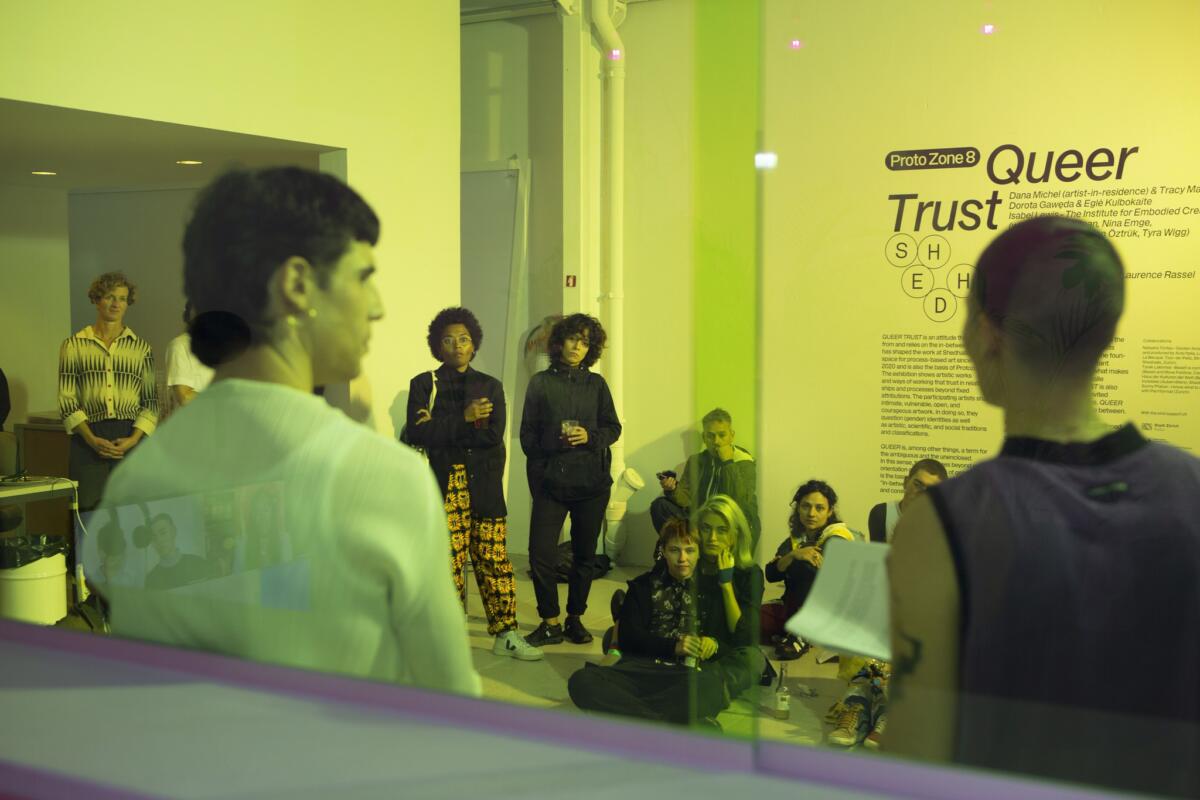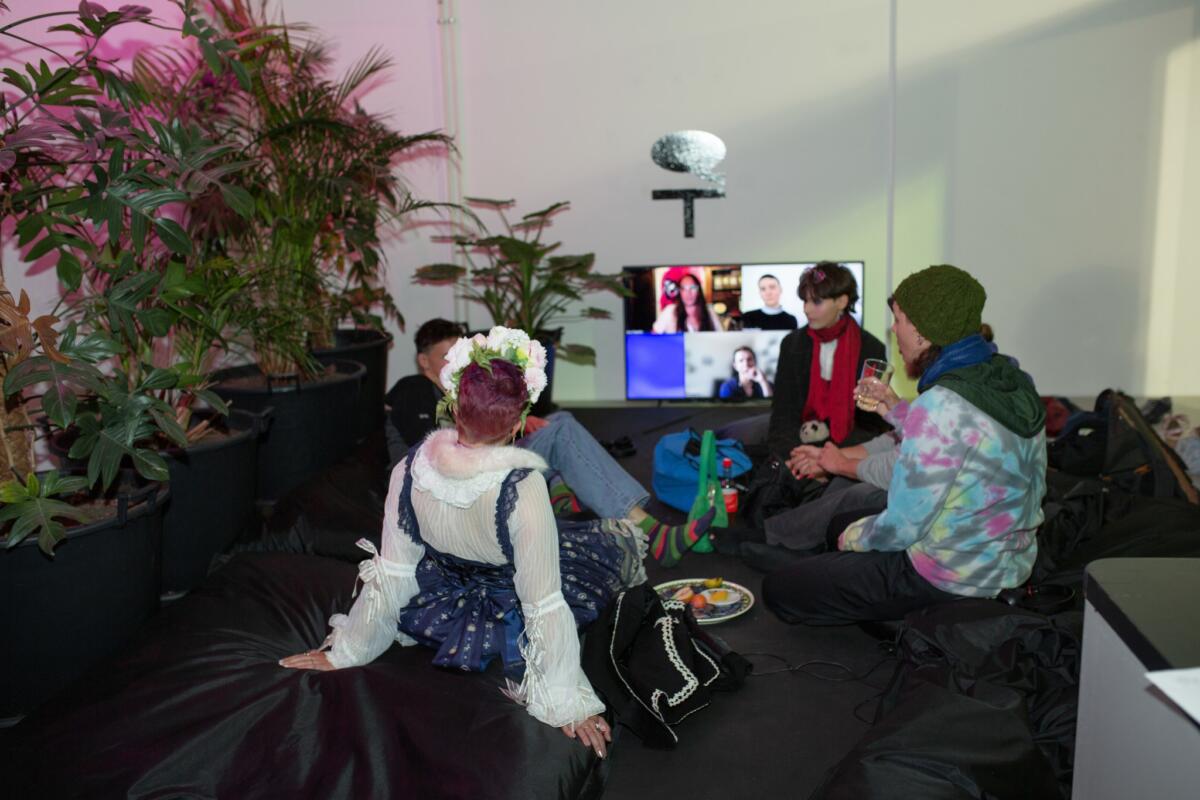
Shedhalle is an exhibition space located at the site of Rote Fabrik, a former mechanical silk weaving mill in Zurich. Revived in 1985 as a venue for the presentation of local artists, since 1994 it has expanded its activities to the international scene. The focus of the institution has shifted to supporting interdisciplinary, discursive, and research-based activities, as well as on presenting art that interferes with socio-politics. The artistic director of the space is elected on the basis of an open call and serves a five year term of office. Since 2020, this position has been held by Thea Reifer and Phila Bergmann, who have implemented Protozone as their program for Shedhalle. Protozone is an inclusive space that allows artists and people from different backgrounds to collaborate, and is geared toward process-based activities. There are four Protozones initiated yearly, each with a commanding theme governed by its own rules. Protozones are then divided into two phases: Hi-intensity and Lo-intensity.
In September 2022, Protozone8 was launched under the title QUEER TRUST, the Hi-intensity phase lasted from September 16 to 18 and the Lo-intensity phase runs thru December 4. The Hi-intensity phase combines a gallery exhibition with works and installations created or activated between the artists and the public. Reifer and Bergman have backgrounds in the performing arts, which is noticeable not only at the level of organizing but also in the arranging of the space. The performativity of their program lies not only in the considerable presence of time-based art (domination of video and live performance) but also in the awareness of the presence of the viewer’s body in the gallery space. QUEER TRUST is built in such a way that the person visiting has the full comfort of being at a gallery space and interacting with artworks made in different media. The exhibition rooms are filled with cushions, carpet, comfortable seats; videos on big screens turn on one by one, giving the opportunity to watch them from the beginning, without interference. During the Hi-intensity phase, fruit, hot tea, or even hot meals were available for the public. These seemingly small elements created a welcoming feeling for guests, that one can stay as long as one wants, and also return.
The curators describe QUEER TRUST as “an attitude that draws from and relies on the in-between” and Queer itself as “a term for the ambiguous and the unenclosed[1]”. The undefinedness of one’s identity, its relationship with temporality and ordinariness were reflected by choreographer and live artist Dana Michel, in their three-hour performance “The Schenectady Report”. Dressed in an office uniform a few sizes too large, the artist performed in the gallery space an improvised choreography incorporating minimalist, everyday gestures. She used objects associated with home or office spaces, such as a chair, a vacuum cleaner, foil, etc. The performance ended with the artist sitting motionless, with Christmas music playing in the background, in a box with blinds specially built in the gallery space to resemble an office space with glass walls. Michel’s performative action looks like a living sculpture, which is a commentary on social conventions, expressing nothing concrete but depicting well the existence of the human in contemporary post-capitalist reality. Observing their movements is a meditative and liberating process. Just like in their statement on Instagram: “HELLO…we are allowed to exist. all that stuff we stuff down and tuck away and repress just comes out and back to choke and suffocate us and those around us anyways[2].”

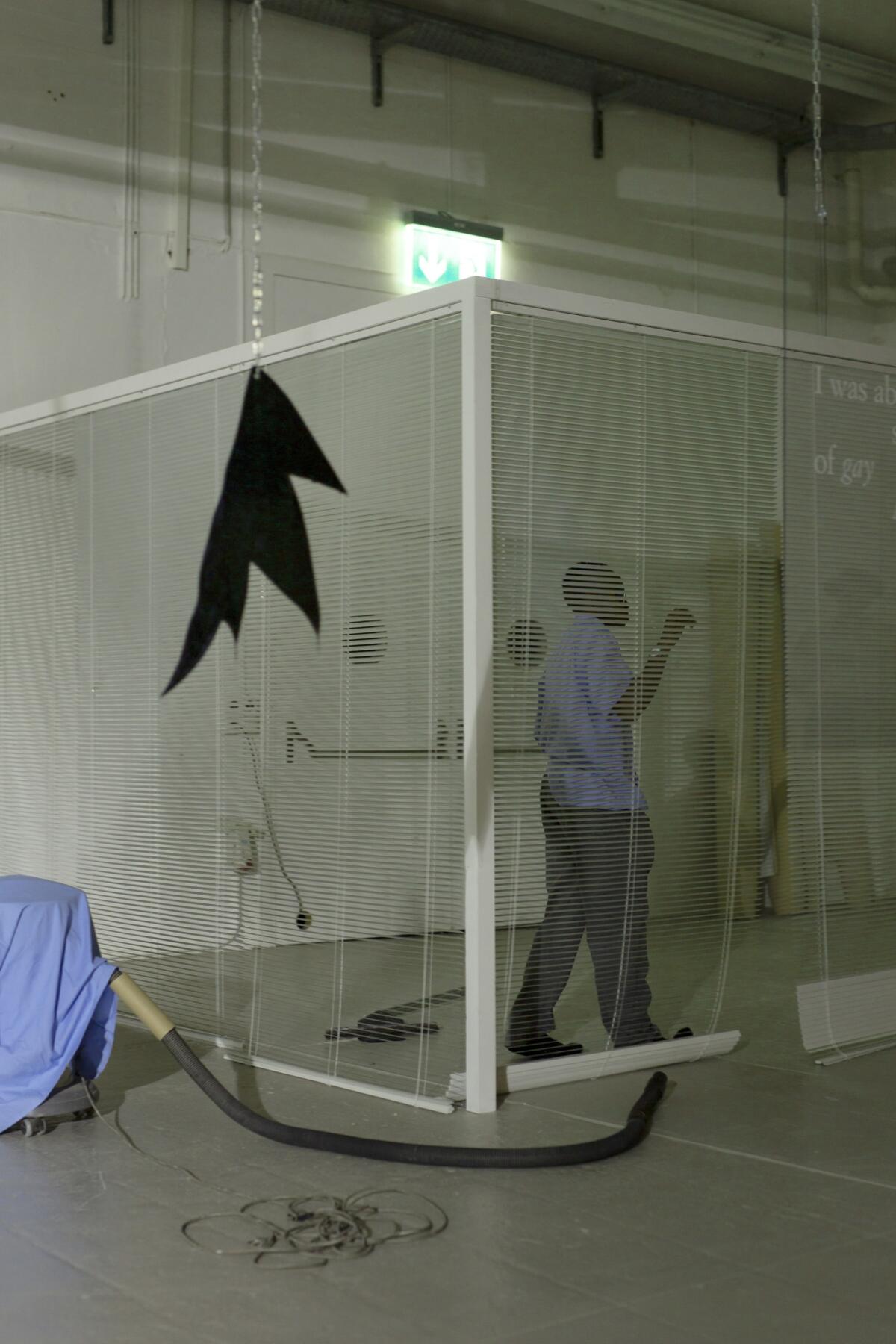
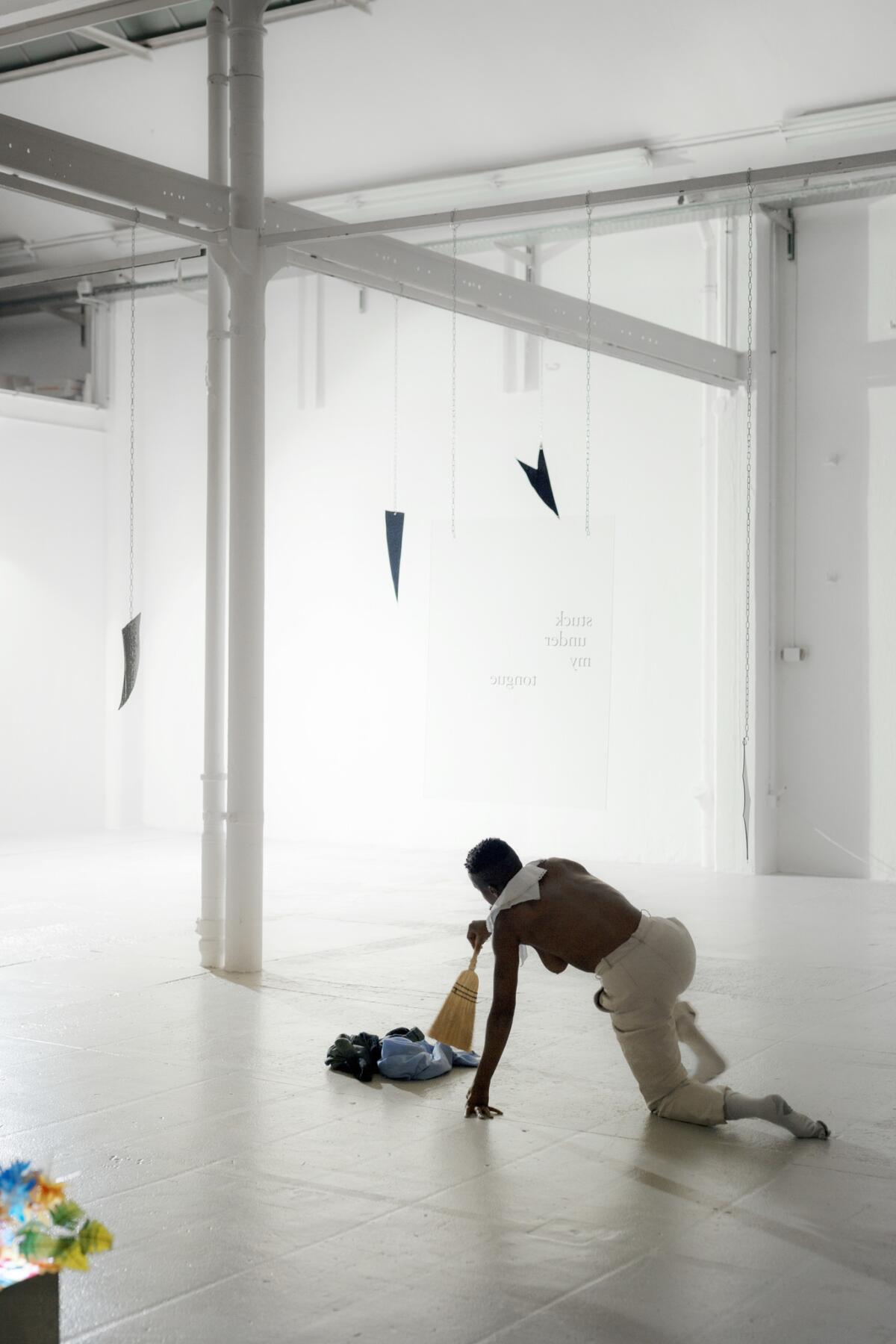
Dana Michel’s acquiescence to existing and being alive reminded me of the experience of being a teenager in the early 2000s in Belarus, having no access to public space due to the political situation, trying to find my own identity that didn’t fit into the categories or definitions known to me. Back then I was sure that this identity I was seeking could exist and could be expressed in words and attitudes, and it was this feeling that was fueling the need to find my place and people. A similar kind of teenage desire to explore the boundaries that society sets for us, and the willingness to queer and expand meaning and experience, were evident in the piece by Natasha Tontey. Their film “Garden Amidst the Flame” offers us a subversion of established conventions by depicting a child gang, composed of girls, practicing the ancient rituals of Indonesia’s Minahasan community. The film depicts fantastic and imaginative situations taking place outside of linear time, and the images are accompanied by music with liberating lyrics and references to non-European, pre-colonial ways of thinking and expressing thoughts. The artist rewrites Miahasan cosmology, reversing social roles in response to the hypermasculinity of her own community’s practices and beliefs. This is a direct reflection of the core ideas of QUEER TRUST, showing a diversity of perspectives, challenging stagnant identities, emphasizing everlasting change or at least its very possibility.
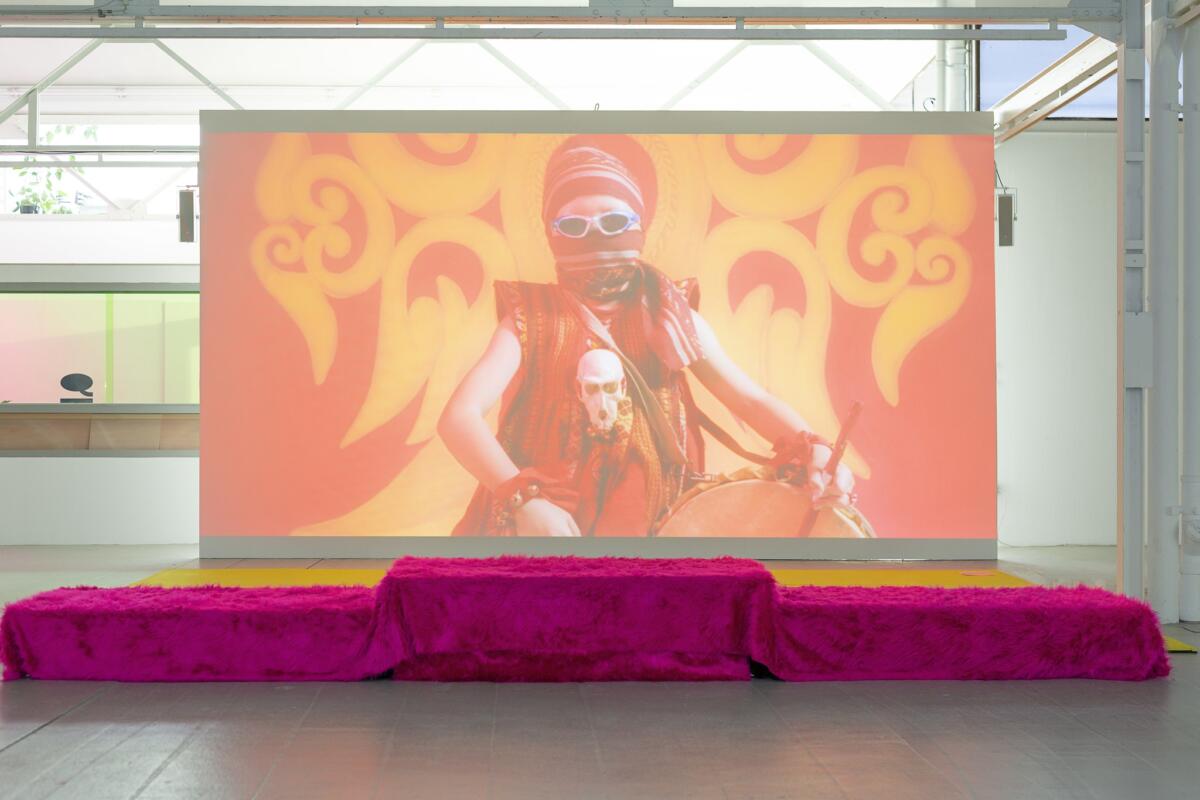
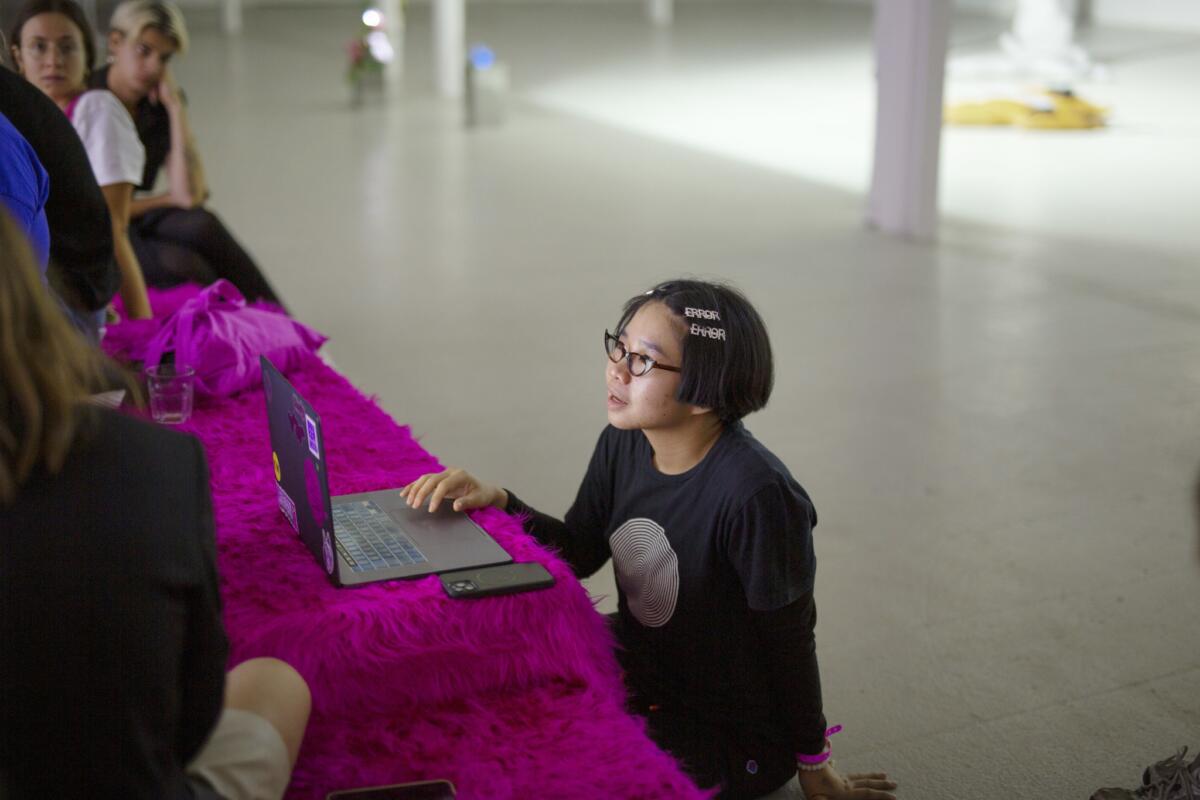
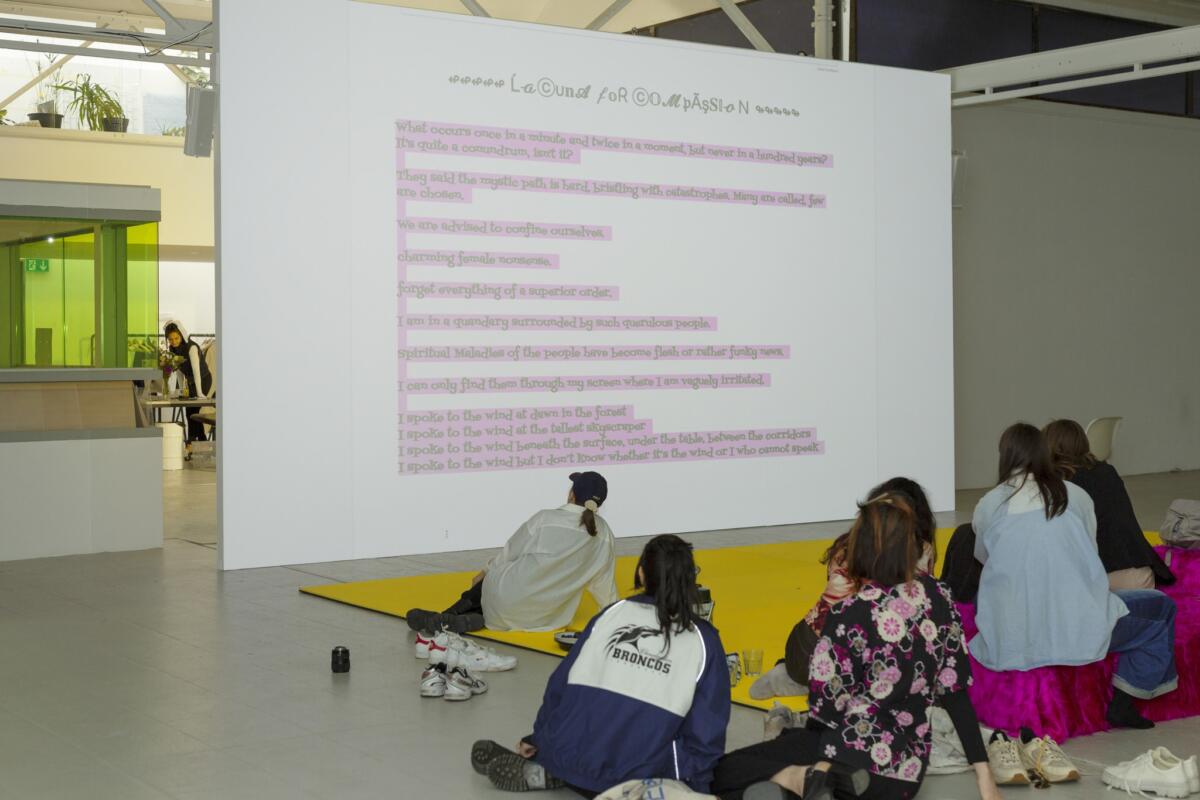
On the other hand, Sunny Pfalzer’s “I know what to do” consisting of performance, fragments of which were used for a video in the exhibition, and soft sculptures representing performers bodies, addresses the theme of entering maturity, clashing with the surrounding world and embracing or rejecting patterns of behavior. The video is mixed from a variety of gestures derived from pop culture music videos (f.ex. of Justin Bieber), recreated by performers Lau Lukkarila and Slim Soleded and the artist themselves. They mimic those moments of posing in front of a mirror and practicing movements, which are supposed to encourage socialization in a gender-normative world. The video is playful, dynamic, and attractive, but also anxiety-inducing, as performers seem not to challenge the conventions proposed to them by pop culture. The work is an interpretation of a set of pictures that helps to form the contemporary “norm” of sexuality, transmitted by mainstream media. It is a reflection on the formation of one or another subjectivity based on copying proposed behavior through movement and the experience of one’s own corporeality.
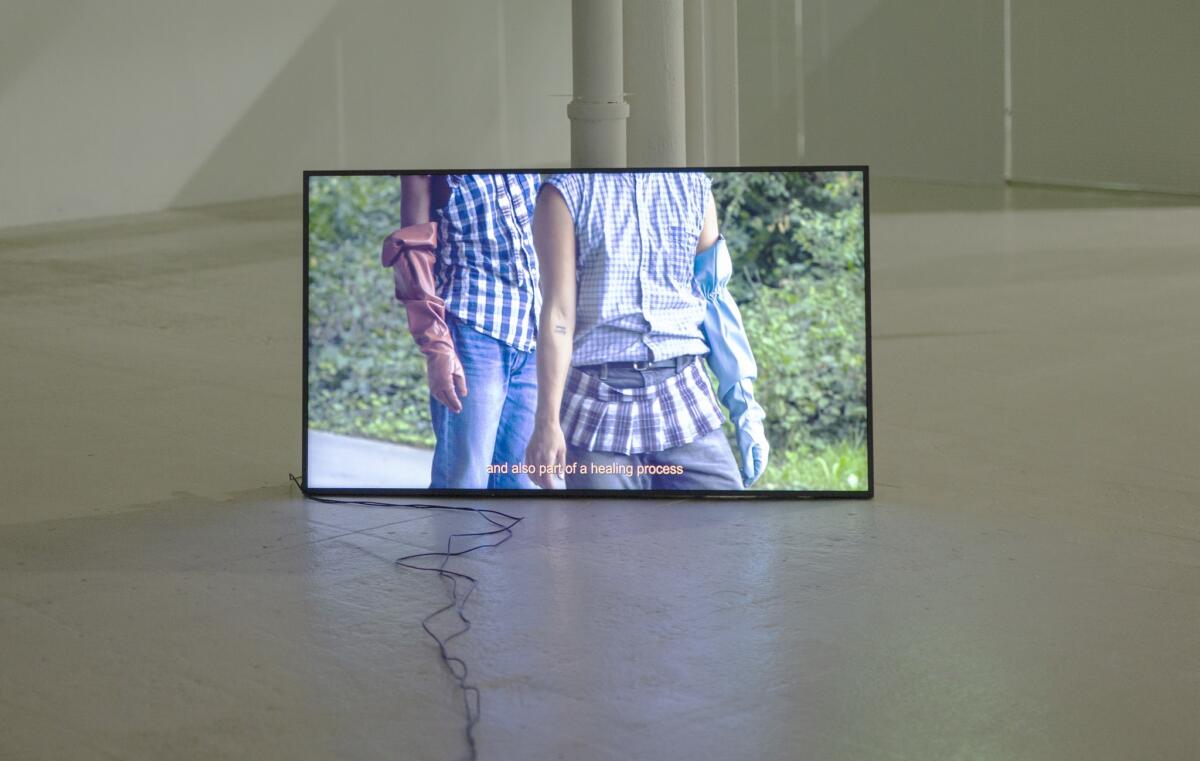
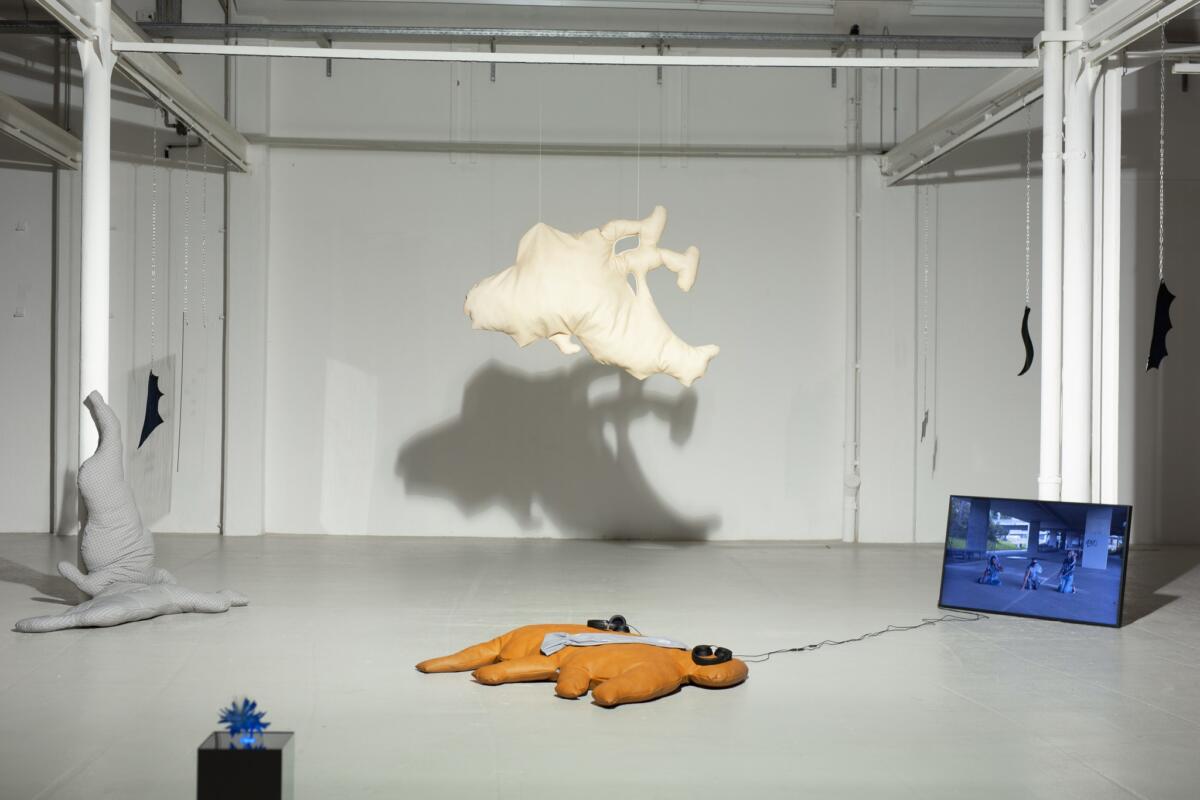
Binarity is not supposed to have in-betweens. Queerness consists of mostly in-betweens. A subtle play on this queer blurriness is represented in Tarek Lakhrissi’s work “A horn is a thorn is a horn.” Transparent plexiglas printed with Lakhrissi’s poetry was hung by chains all around the exhibition space, creating a sense of dissonance; non-linearity of meaning and very special subtle playfulness with words and spellings. An attempt to come to terms with the transience and fragility of collective experiences and memories was also characterized by the works of artist duo Dorota Gawęda and Eglé Klubokaitė. Their installation “Leave No Trace (Athens) I-VIII” consists of a modular set of transparent screens on which photo documentation of their performance “SULK”, which took place in 2018 during the 6th Athens Biennale, are printed. Moving around the installation gave a sense of a slight collapse of time-space. The work asked the question of what remains of a shared experience, and what is an appropriate way to document events that involved being with and interacting together. Their work “RYXPER1126AE 02:60”, a mechanism emitting a perfume in the space, created from samples of smells, which also accompanied the original performance, continues the theme of the possibilities of documentation.
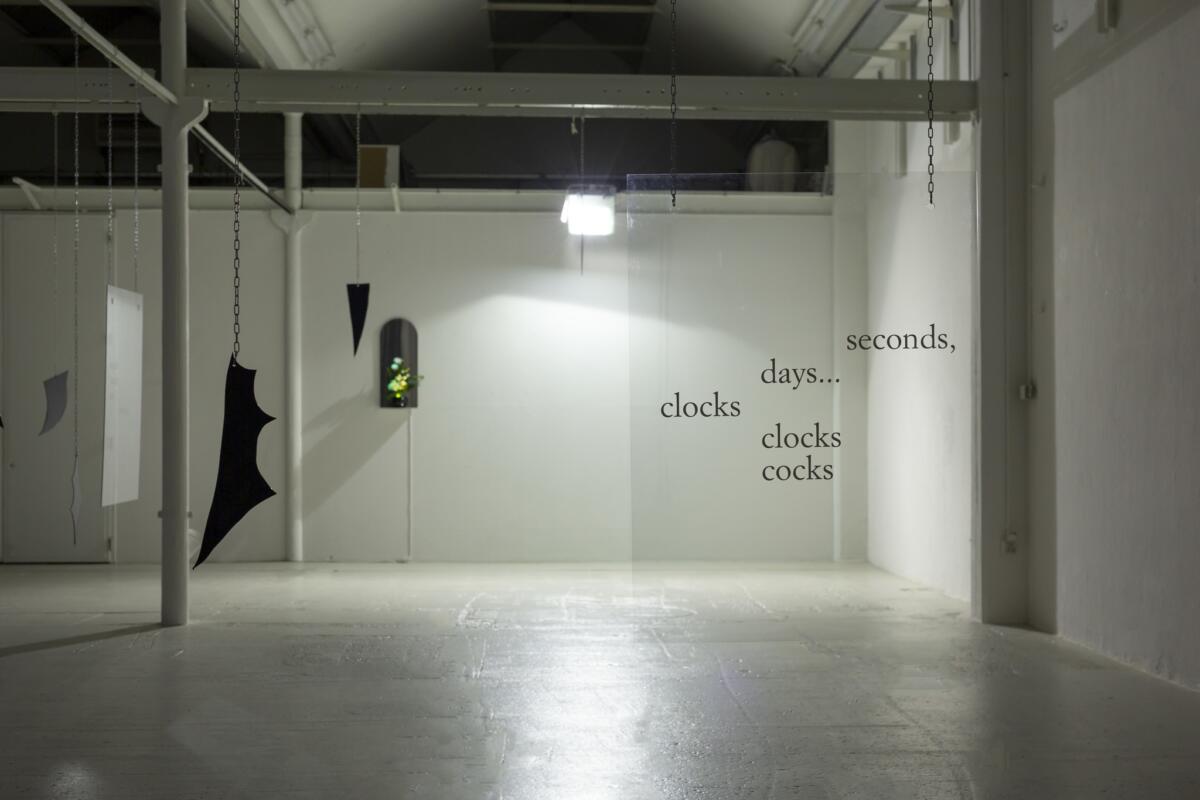
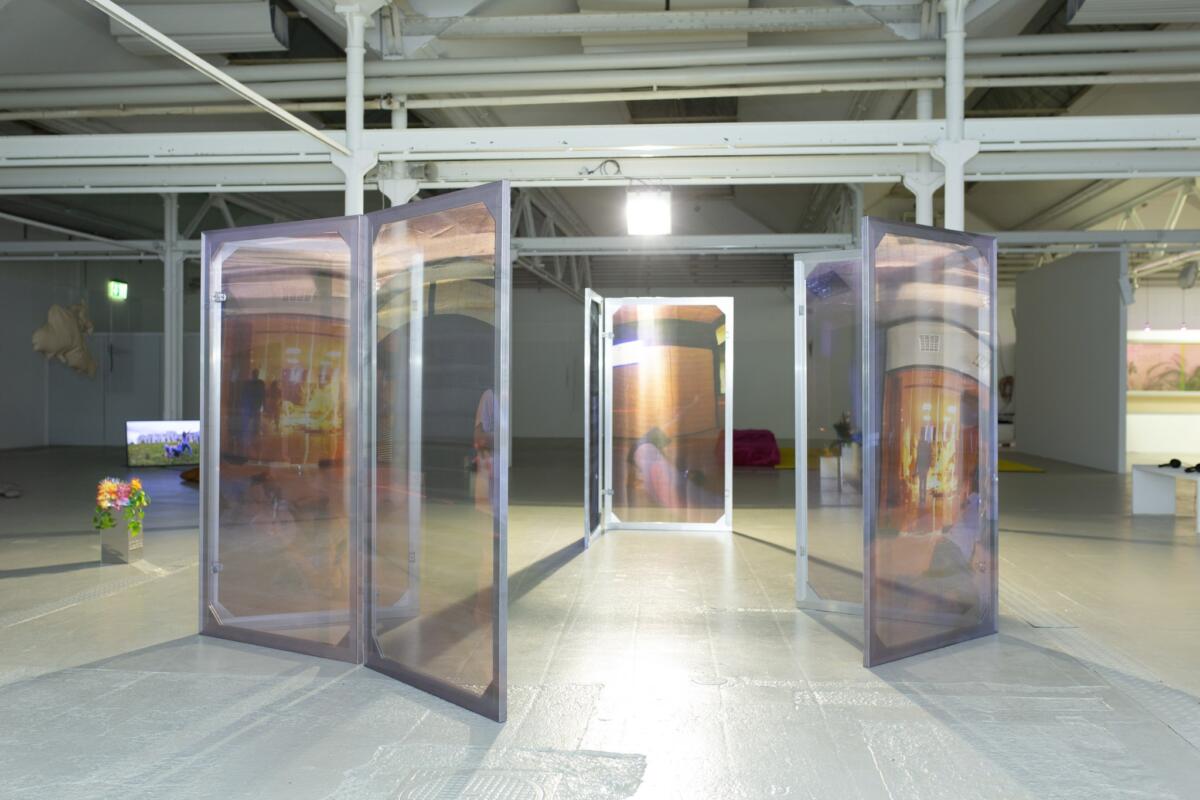
Protozone8: QUEER TRUST is an attempt to capture and represent the ephemeral idea of queer trust, in which there is a lot of instability, sadness, and vulnerability; but also wonderment, as in the ritual-like object-flowers of Gawęda and Klubokaitė’s installation “Votive Flowers and Freestanding Votive Flowers.” These were shimmering light sculptures, scattered throughout the exhibition space, created from artificial flowers that do not wither and therefore, “are at once a reminder, a memorial, and a new beginning[3]“. Queer trust could be experienced here as transience, as being in-between, as the balance of the everyday and the festive; that is, not as something permanent, but as an experience accompanying the moment that dissolves and dissipates.
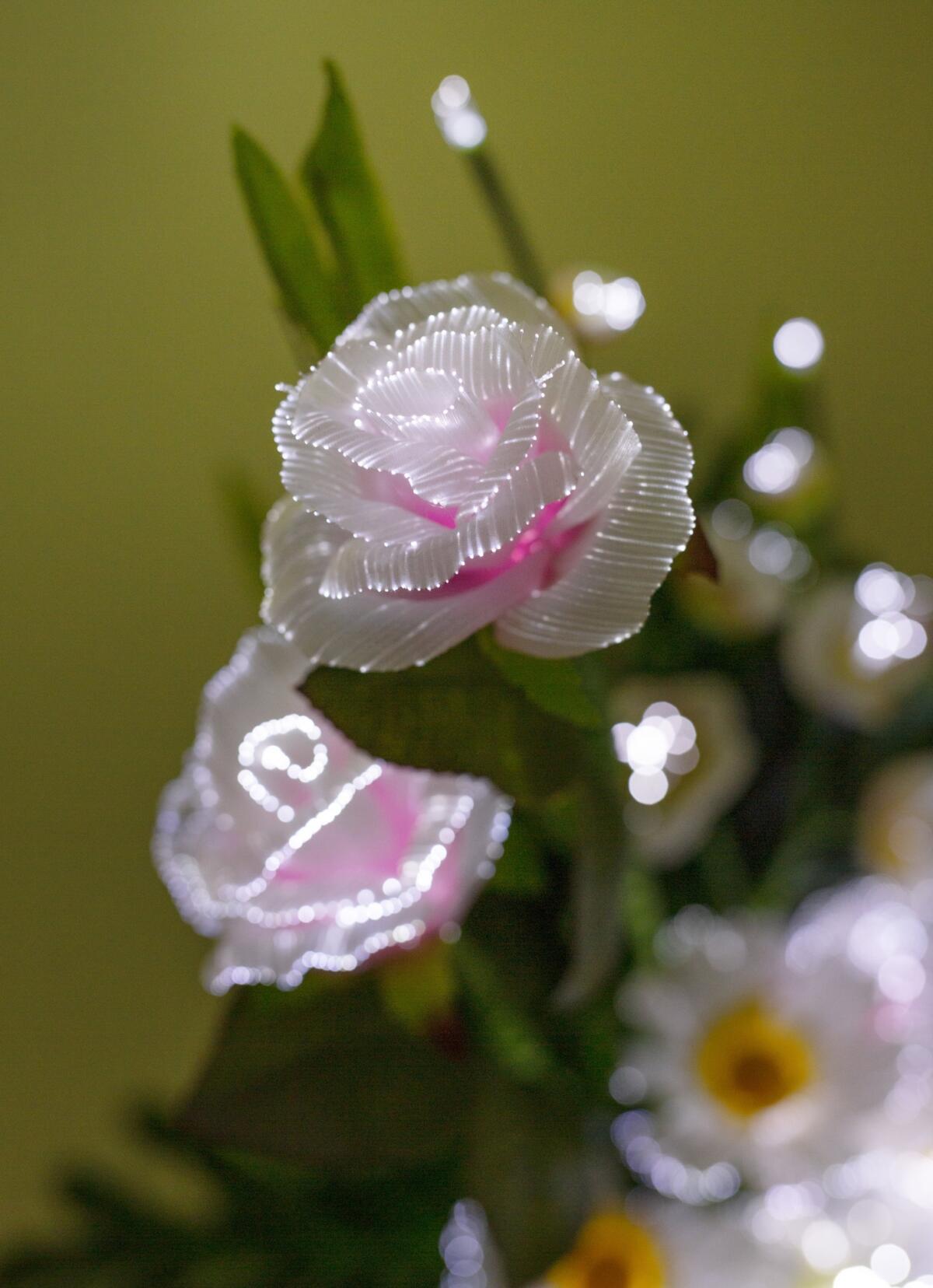

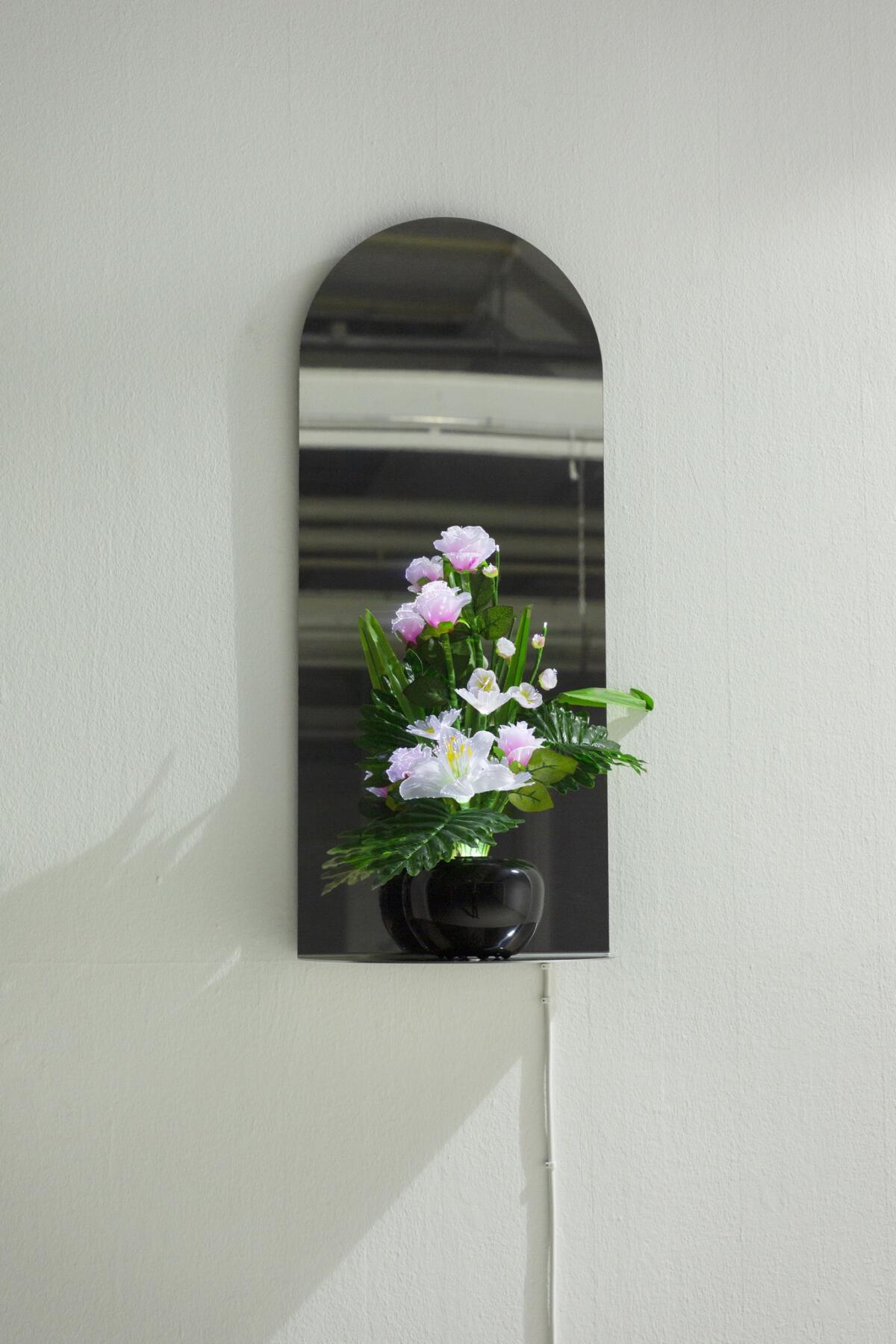
Protozone8 is not just a representation of an idea, but an attempt to create a safe space for both the people involved in the creation of the exhibition and its participants. As Reifer and Bergman emphasize in their curatorial text, trust is the basis of their collaboration with participating artists. In recorded conversation with cultural worker Laurence Rassel and musician Terre Thaemlitz, which was shown at the very beginning of the exhibition as a kind of introduction with a dose of criticality, curators add that such a setup is possible in this very context of Switzerland; a small country, when one knows everyone from officials to artists, and one can try to establish a specific, enduring bond. This is the kind of strategy that opposes tokenizing the idea of queer or queerness, locking it into a specific, reductive set of slogans, ideas, and frames.
Shedhalle felt like a safe space; a safe space as in a space which is functioning the way things should be. However, I realize that there is a considerable illusion in this. An illusion because, as Thaemlitz rightly pointed out, queerness in the political sense always has a large dose of discomfort, struggle, oppression and mistrust. Protozone8 is a space of utopia, giving us a temporary sense of security. Being in this space is to some extent an escapist experience, but not entirely. QUEER TRUST does not present pure ideas but puts them into practice, incorporating the fact that we exist in our bodies and in our differences. The space was not over filled and artworks were treated respectfully. Occasionally there was an empty wall that you could step up to or lean against, and it didn’t create a feeling that something was missing. The curators clearly chose a strategy opposite to the more typical museum approach of horror vacui. The works were shown in such a way that one could see them, experience them but also not get lost in the excessive number of terms, ideas and concepts. Protozone8 was created as space that is not conceptualized with a pure European mind, a space created for the presence of people, space that gives hope for the potential possibility of a better common future.


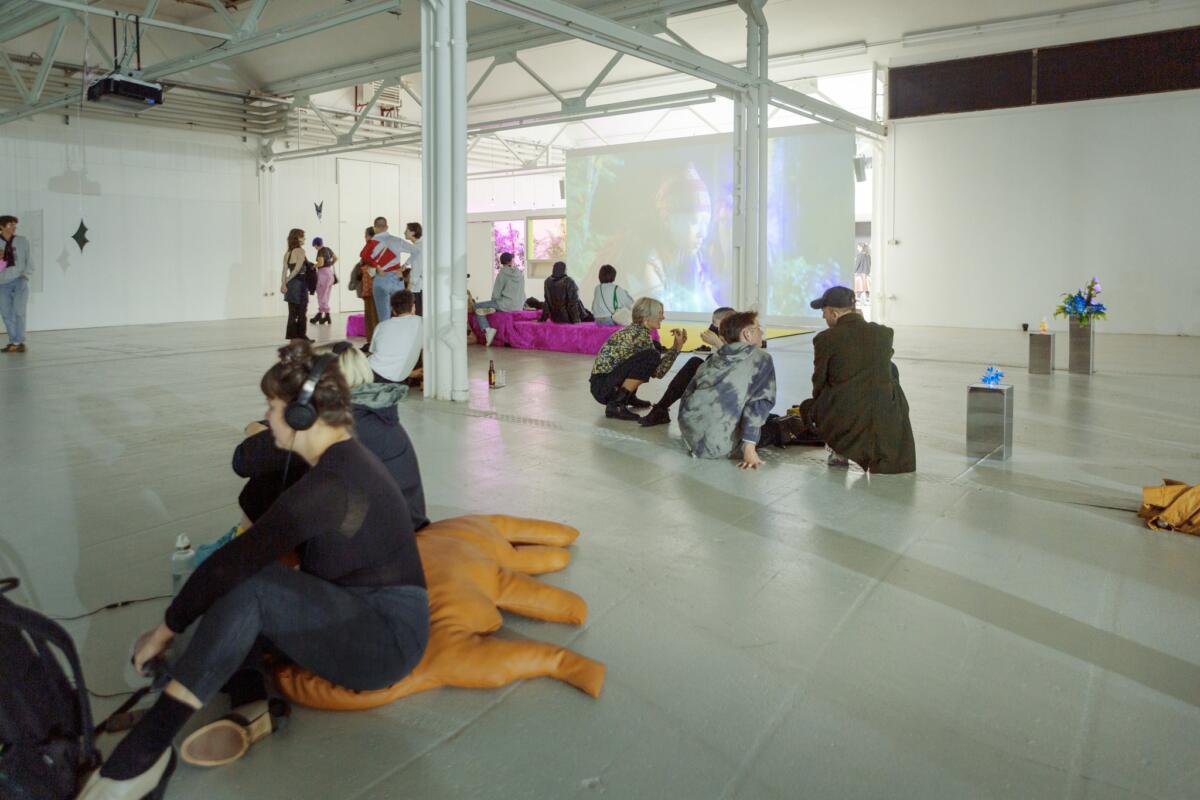
[1]Curatorial text
[2]Dana Michel’s Instagram: https://www.instagram.com/p/CjS1T2aoOcV/
[3]Work’s description
Imprint
| Artist | Dana Michel, Tracy Maurice, Dorota Gawęda, Eglė Kulbokaitė, Isabel Lewis, Natasha Tontey, Sunny Pfalzer, Tarek Lakhrissi, Terre Thaemlitz, Laurence Rassel |
| Exhibition | Protozone8: QUEER TRUST |
| Place / venue | Shedhalle Zürich |
| Dates | 16.09 - 4.12.2022 |
| Curated by | Thea Reifer, Phila Bergmann |
| Website | shedhalle.ch/en/ |
| Index | Ani Ekin Özdemir Ceylan Öztrük Dana Michel Dorota Gawęda Eglė Kulbokaitė Isabel Lewis Izidora l LETHE Josephine Baan Lau Lukkarila Laurence Rassel Marshall Vincent Natasha Tontey Nina Emge Philipp Bergmann Shedhalle Zürich Slim Soledad Sunny Pfalzer Tarek Lakhrissi Terre Thaemlitz Thea Reifler Tracy Maurice Tyra Wigg Vanessa Bosch Vera Zalutskaya |

